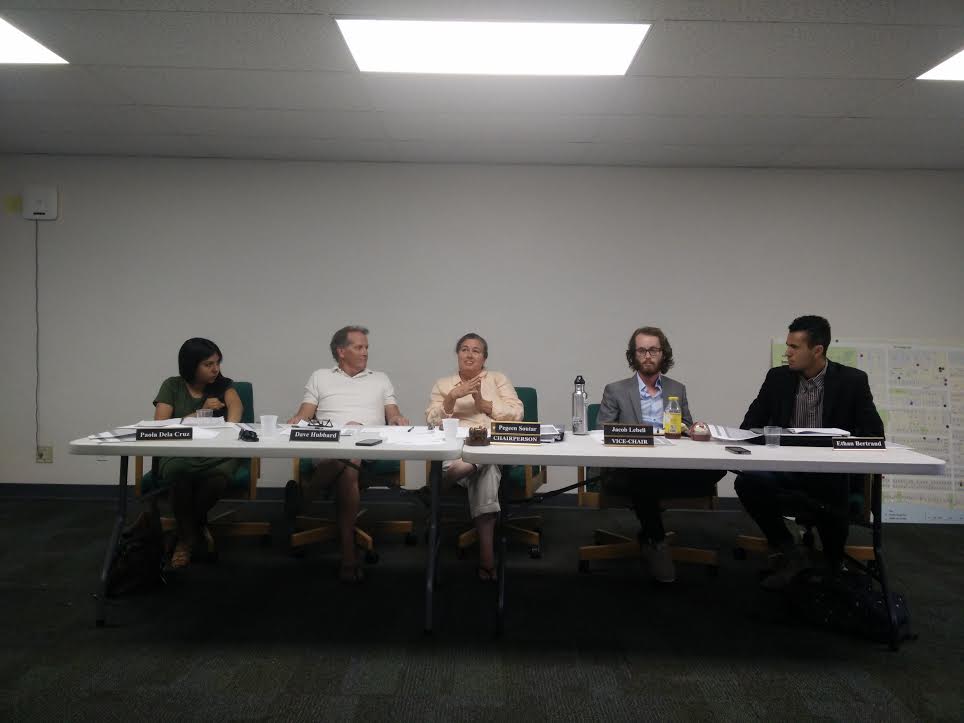I.V. Community Rejects Special Tax Proposal
Bed Tax Takes Backseat to Community Services District Funding

Isla Vista Recreation and Park District (IVRPD) boardmembers decided not to place a special tax on the county’s November ballot after concerns over lack of transparency — and over possibly jeopardizing the passage of the user utility tax for I.V.’s community services district (CSD) — were raised in a Thursday public meeting.
Chairperson Pegeen Soutar acknowledged the criticism and proposed holding a special election by mail in the first half of 2017. A special mail-in ballot for the tax is estimated to cost between $50,000 and $60,000, while the placement on this year’s November ballot would have only cost $11,000.
Discussions of placing a special tax on the ballot started around February, according to Soutar, due to worries that California’s drought would severely impact I.V.’s parks. After missing the deadline to place the special tax on the June primary ballot, the idea of a November placement began to wander through boardmembers’ minds.
The proposed $28.75-per-bed special tax comes at a favored time. Isla Vista property owners will conclude payment of a bond to the IVRPD in September 2017. The special tax, if approved, would take the bond’s place, meaning that most property owners would not see an increase in taxes, just a change in where the money is going, according to IVRPD general manager Rodney Gould.
Things didn’t get serious, however, until a week ago, when boardmembers held a special meeting on June 23 to consider passing a resolution to place the tax on November’s ballot. Public input was a “mix of pro, con, and concerns,” according to that evening’s meeting minutes, and discussion was postponed for a week.
Thursday’s public input was still mixed, but proponents of holding off on the tax held a slight lead throughout the meeting. Outgoing 3rd District Supervisor Doreen Farr sent a Thursday letter to the IVRPD, communicating her “deep concern with the public process” that boardmembers took in deliberating the special tax.
Several people echoed this concern, including students involved in UCSB’s Associated Students. They said summer was not the ideal time for this deliberation to happen, since students are not as involved and informed as they are during the standard school year.
The discussion soon turned political, with special tax supporters claiming that CSD proponents were blocking the passage of this resolution out of fear that voters would reject the user utility tax, which would fund the district.
Former 3rd District Supervisor candidate Jay Freeman said that people against the IVRPD’s tax were those “who do not attend meetings of this board except when they come here to ask for support of the [CSD].” He challenged current 3rd District Supervisor frontrunner Joan Hartmann to announce her support for both entities, instead of choosing one or another.
Service Employees International Union Local 620, the county arm of the nationwide union, strongly supported placing the tax on the November ballot, saying that the parks’ dire need for water was more important than political calculations.
A recurring concern regarding the IVRPD’s budget is the worry that purchases in I.V. by UCSB would endanger taxable income, since UCSB is exempt from property taxes. UCSB purchased Tropicana Gardens last year for $156 million. If removed from county tax rolls, the county would lose $1.1 million in property tax income.
George Thurlow, Assistant Vice Chancellor for UCSB, assured that there are no plans in the next three years to remove the property from county tax rolls, saying that federal security laws currently prohibit the university from owning the property.
Thurlow added that even if UCSB were to take Tropicana Gardens from the tax rolls, UCSB’s Long Range Development Plan stipulates a payment of $320 per bed a year — $320,000 a year in the case of Tropicana Gardens — into a Housing Impact Fund in perpetuity for any loss of revenue caused to the county. “I really want us to stop using the university as a boogeyman,” he said
Near the end of the meeting, Assemblymember Das Williams’ District Director Darcél Elliott raised her hand and offered a seemingly deus ex machina: Williams texted Elliott, pledging to cover half of the special election’s cost. It was a response to an earlier pledge from Hartmann to give money to the cause if elected 3rd District supervisor.



